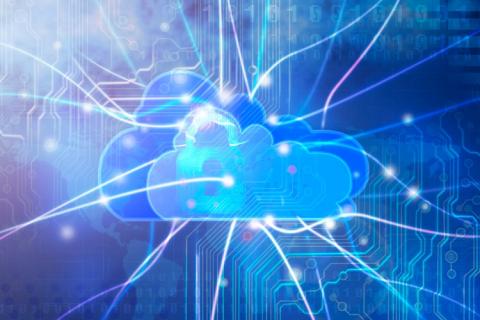Security | Threat Detection | Cyberattacks | DevSecOps | Compliance
May 2020
5 Strategies to Mitigate Business Risk During Coronavirus
Business risk in the United States may be higher during the novel coronavirus pandemic than at any time in our generation, making risk management a must. What are your strategies for risk mitigation—not only in your enterprise but up and down your supply chain—amidst COVID-19 disease outbreaks? Business interruption is a growing concern right now.
Cybersecurity Hygiene Best Practices During COVID-19 and Beyond
As cybercriminals continue to use the novel coronavirus pandemic to launch cybercrime scams and cyber attacks on teleworking applications, virtual private networks (VPN), and other technologies associated with remote work, many organizations find themselves in crisis mode, as well. Your enterprise may be scrambling daily to protect your sensitive data, reduce the likelihood of data breach, and guard against malware and ransomware attacks as well as other cyber threats.
May 2020: Compliance Certification Roundup
Beginning this month, Reciprocity will highlight companies that have earned compliance certifications for information security frameworks. Here’s our May 2020 roundup of compliance news from around the United States, and around the world.
COVID-19: Importance of Ethical Leadership During a Crisis
Change is hard—and during the COVID-19 pandemic, it’s happening at breakneck speed. Your employees and business partners need to know now, more than ever before, that they can trust you to be honest and transparent with them. This is the essence of ethical leadership. We’re standing on shaky ground as the virus sweeps through our nation and upends our economy. People are losing their jobs, their health insurance, and perhaps even their savings.
COVID-19: User Access Management Best Practices
As cybercriminals step up their efforts during the COVID-19 crisis to infiltrate your information systems, identity and access management (IAM) processes are more important for cybersecurity than ever. Aimed at preventing data breaches and unauthorized access to your systems, IAM becomes more critical as more of your employees perform their work from home. The firewalls that protected your system perimeter won’t suffice any longer, because there is no perimeter.
COSO-Based Internal Auditing
Internal audit and compliance departments benefit from having a comprehensive framework to use to perform corporate risk assessment and internal control testing as well as fight fraud. The most popular framework is the COSO Framework. The Committee of Sponsoring Organizations of the Treadway Commission (COSO) was originally formed in the United States in 1985 to combat corporate fraud.
What is Compliance Oversight?
Regulatory compliance is continuously evolving, which makes it increasingly imperative that everyone involved in the Compliance Management System (CMS) understand their responsibilities. Various sectors mandate oversight, including healthcare, finance, and cybersecurity. It is also a foundational business practice to safeguard company reputation and demonstrate integrity to consumers and the public. Compliance management is a top-down system, like most workplace cultures and business processes.
11 Proven Risk Mitigation Strategies
Business is inherently risky. Types of risk abound: financial, legal, regulatory, reputational and more. In the most extreme scenarios, failing to maintain an acceptable level of risk could result in injury or death, as in a factory; or, in the case of critical infrastructure, widespread economic catastrophe.
Risk Assessment Checklist NIST 800-171
The National Institute of Standards and Technology (NIST) Special Publication (SP) 800-171 is a subset of IT security controls derived from NIST SP 800-53. NIST SP 800-53 provides a catalog of cybersecurity and privacy controls for all U.S. federal information systems except those related to national security. The IT security controls in the “NIST SP 800-171 Rev.
How to Comply with GDPR
When it comes to organizations incorporated and operating out of the United States, General Data Protection Regulation (GDPR) compliance can be confusing. Many people struggle to understand what exactly is the GDPR and whether it applies to all organizations. On May 25, 2018, the European Union (EU) via the European Parliament, signed into law the GDPR, to an enhance Directive 95/46/EC.
Risk Management Process
Not too long ago, “risk management” was considered mainly an insurance term. The risks a business might incur covered a fairly small and discrete range of scenarios, including the following: The times have changed, however, and so have risks. With the advent of the digital age come a plethora of new risks as well as an increase in the complexity of existing ones.
Coronavirus-Themed Cyberattacks To Watch Out For
The novel coronavirus isn’t the only plague affecting businesses. Cyberattacks are spreading, too, as malicious actors take advantage of interest in COVID-19 news and coronavirus fears to trick people into clicking on phony links and attachments in social engineering and phishing scams. The U.S.
Tips for Managing Third-Party Risk in Health Care
The healthcare industry possesses the crown jewels that the bulk of attackers are after: Personally Identifiable Information (PII). Data has become the new currency in the digital underground, consisting primarily of social security numbers, credit card information, health information, and passwords.
7 Pandemic Risk Management Tips to Implement Now
As COVID-19 continues to spread worldwide, not only disrupting health and life but also business continuity up and down the supply chain, economic and cyber risk have taken on pandemic proportions, as well. Many enterprises are struggling just to keep essential services functioning as they send employees home to work with new, hastily procured technologies. At the same time, they’re battling a surge in cybercrime by threat actors seeking to take advantage of the chaos.
How Nevada's SB220 Compares to CCPA
On May 29, 2019, the governor of Nevada signed into law Senate Bill 220, a new consumer privacy law. The new privacy law amended Nevada’s existing 2017 online privacy law. Effective October 1, 2019, the new privacy gives consumers the right to opt-out of the sale of their personal information.



